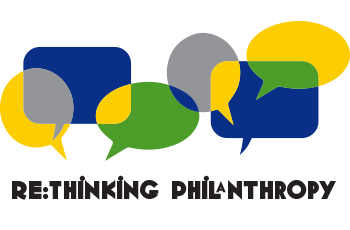By now, everyone in the philanthropic and charitable sector is familiar with the federal Johnson Amendment and its importance in maintaining nonpartisanship. While a longstanding piece of legislation since the 60’s, there are often efforts made to undermine its integrity. H.R. 949 or the “Free Speech Fairness Act”, for instance, seeks to allow tax-exempt organizations to make statements regarding political campaigns without losing their status. The President has even asserted that he “got rid” of the Johnson Amendment.
The Policy Blog: Charitable Giving Landscape
In 2017 (the most recent data collection by Giving USA), Americans contributed $410.02 billion to charity. These charitable dollars are vital to America’s charities, which continue to face tremendous demand for their services. Unfortunately, the Tax Cuts and Jobs Act (TCJA) of 2017 has made it less beneficial for average Americans to donate to charities. Fewer Americans are making charitable donations. Indiana University’s Lilly Family School of Philanthropy has found that the percentage of Americans who give has fallen by 11 percent over the past 14 years – from 67 percent in 2002 to just 56 percent in 2014. The doubling of the standard deduction in the TCJA will likely accelerate this trend.
The Policy Blog: The Shutdown (updated)
The longest government shutdown in history has briefly ended after 35 days, but the effects are being felt nationwide. While 800,000 federal employees were furloughed, they were not the only ones being impacted. A blog post from the Community Foundation for Greater Atlanta highlights how nonprofits are also being affected. Many organizations also called for an end to the shutdown.
The Policy Blog: Tracking UBIT (updated)
The 2017 Tax Cuts and Jobs Act brought many changes to the tax code, including how unrelated business taxable income (referred to by the IRS as UBTI or commonly known as UBIT) affects nonprofits. Transportation benefits (such as transit or parking subsidies) that nonprofits provide to their employees are now subject to UBIT (21 percent) and the structure of the tax now prevents charities from offsetting a loss from one unrelated business area with profits from another area. This affects a wide range of organizations who will be spending more money on taxes and less on their communities.
Final Materials and Guidance Released on New York State’s Sexual Harassment Prevention Laws (updated)
This blog post was originally published on October 2nd, 2018 by Harter Secrest & Emory LLP Attorneys and Counselors, a NY Funders Alliance member. It is reposted here with permission from the author.
New York Provides Draft Sexual Harassment Prevention Policy and Training Guidance
This blog post was originally published on August 27th, 2018 by Harter Secrest & Emory LLP Attorneys and Counselors, a NY Funders Alliance member. It is reposted here with permission from the author.
NY Funders Alliance Announced Inaugural Philanthropy & Public Policy Fellow
Public policy decisions, at every level, have daily implications for place-focused grantmakers — whether its navigating complex local housing codes as part of a healthy homes initiative, ensuring an accurate 2020 Census, or sustaining and expanding funding to scale proven early childhood programs – federal, state and local policies are integral to the philanthropy sector’s goals for healthy, vibrant and sustainable communities.
Partnerships for Affordable Energy in New York State
Millions of New Yorkers struggle every month to pay their energy bills. Energy is a sizeable component of housing costs, and many residents live in inefficient homes where energy alone consumes 10% or more of their income.
Civil Society: 100th Anniversary of the Charitable Deduction
“Alexis de Tocqueville observed that public-benefit associations are the foundation on which American democracy rests. Private associations working for the public benefit are not just signs of a healthy democracy, he concluded, they are its cause.”
–Alex Reid, The Almanac of American Philanthropy
New Research Highlights Role of Funder Networks & Associations in How Foundations Access & Use Knowledge
This month’s blog post was written by David Biemesderfer, President & CEO of the Forum of Regional Associations of Grantmakers. It was originally published on the Forum’s blog on February 16th, 2017 and is republished here with permission.

